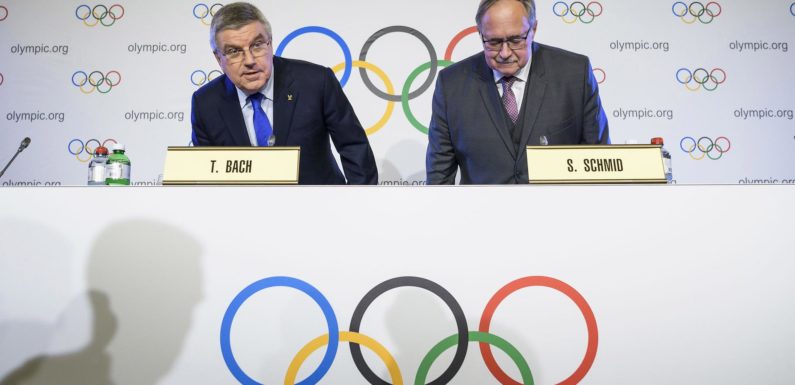
Following are the key findings of a report by the IOC disciplinary commission, headed by former Switzerland President and Federal Council member Samuel Schmid, that led to Russia being banned from the Pyeongchang Games on Tuesday.
The commission based its findings on an independent report by Canadian lawyer Richard McLaren that was commissioned by the World Anti-Doping Agency and published last year.
Russia has denied that the state was involved in doping cover-ups.
* The commission confirmed that the Russian authorities developed a system that allowed a Moscow laboratory to routinely change positive test results to negative, as well as to tamper with samples during the Sochi Games in 2014. It said this confirmed the “unprecedented nature of the cheating scheme and, as a consequence, the exceptional damage to the integrity of the IOC, the Olympic Games and the entire Olympic Movement.” However, the commission said it had not found “any documented, independent and impartial evidence confirming the support or the knowledge of this system by the highest State authority.”
* Thirty-Four Russian athletes tested positive in re-analysis of samples from the 2008 and 2012 Olympics, the commission said. This confirmed “a widespread culture of doping in Russia, affecting numerous sports for a long period of time.”
* The commission said it found “some similarities” with the doping situation in the former East Germany but “considers that the system in the former GDR was different from the one described.”
* The commission said it was able to confirm allegations that some individuals received payments to conceal positive doping tests, having previously encouraged athletes to purchase doping substances.
* Before around 2011-12, athletes were obliged to purchase doping products, pay to cover up their individual test results or both, the commission said. Afterwards, the programme covered the costs of the manipulation of the doping tests.
* The commission said that the system progressed along with anti-doping technologies. It began with deceit on the reporting system, escalated with the creation of false biological profiles and ended with the tampering of samples.
* The commission said that evidence in the McLaren report showed “failure to respect the WADA Code within the various entities under the responsibility of the Russian Ministry of Sport.” It said that “the then Russian Minister had the ultimate administrative responsibility for the acts perpetrated at the time within the Russian Ministry or the entities under its responsibility.
* The commission noted that the McLaren Report did not mention that the Russian Olympic Committee (ROC) participated in the system. However, it said that “the ROC must be held legally responsible for the breach of its legal and contractual obligations.”
Source: REUTERS

